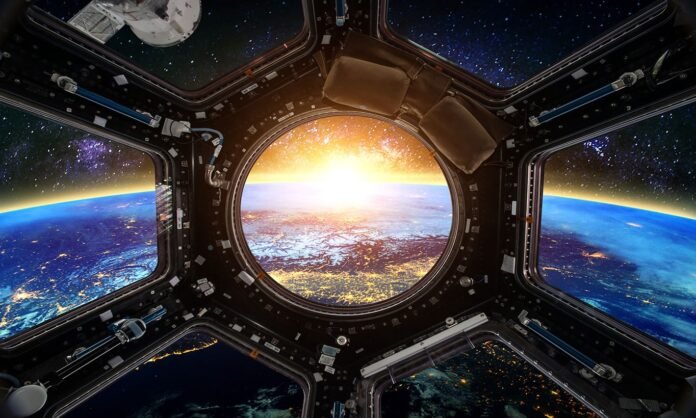The vast expanse of space has long been a source of fascination and wonder for humanity. The possibility of discovering new worlds and extraterrestrial life forms beyond our own planet is both exhilarating and awe-inspiring. Yet, in recent decades, the focus of space exploration has shifted from mere exploration to a more complex and daring goal: colonization and inhabitation. The prospect of establishing new colonies in space poses numerous possibilities and challenges that are both exciting and daunting. In this article, we delve into the intricacies and complexities of space colonization and inhabitation, and the technologies that make it possible.
Exploring the Possibilities: Why Colonize Space?
Space colonization offers not only the potential to discover new worlds and expand our knowledge of the universe, but also a viable solution to address some of the most pressing challenges facing our planet. With climate change, resource depletion, and overpopulation looming, space colonization presents a way to establish new habitats and sustain human life beyond the confines of Earth.
Apart from practical benefits, space colonization also carries a philosophical and existential significance. It prompts us to re-examine our place in the universe and contemplate our obligations as a species.
Challenges and Hurdles: The Road to Space Colonization
While the possibilities of space colonization are enticing, it is not without significant challenges. Technological, financial, and logistical obstacles must be overcome, and ethical and moral concerns must be addressed.
The environmental conditions of space are harsh and unforgiving, with extreme temperatures, radiation, and lack of oxygen, presenting formidable challenges for human habitation. Transporting people and materials to space and developing the necessary infrastructure for habitation requires substantial investment and innovation.
Moreover, the ethical implications of space colonization, including its impact on other life forms and potential conflicts and exploitation, demand careful consideration.
Revolutionary Technologies: Enabling Space Colonization
Despite the challenges, space colonization is not an impossible dream. Significant progress has been made in developing technologies that make it more feasible.
Advanced propulsion systems, such as ion engines and plasma thrusters, provide more efficient and cost-effective means of space travel, enabling us to explore deeper into the universe. 3D printing technology enables us to manufacture and repair equipment and infrastructure in space, reducing the need for costly resupply missions. Advanced materials, such as carbon nanotubes and aerogels, provide lightweight and durable alternatives to traditional materials, making space exploration and colonization more feasible. Life-support systems, such as closed-loop ecosystems and waste-recycling technologies, provide the means for sustaining human life in space, enabling long-duration missions and habitation. Artificial intelligence technologies, such as autonomous rovers and intelligent robots, provide the means for exploring and building on other planets and moons, while reducing the risk to human life.
Beyond Earth: The Next Frontier in Space Exploration
Mars is the most likely candidate for the first human settlement beyond Earth. NASA has plans to send humans to Mars in the 2030s, with the goal of establishing a sustainable settlement by the 2050s. The Moon also has abundant resources and a stable environment, making it another potential candidate for human settlement. Europa, a moon of Jupiter, may have an ocean of liquid water and the potential for life, making it another exciting possibility.
Reflecting on Our Place in the Universe: Conclusion
The prospect of space colonization and habitation represents a new frontier in space exploration, with significant implications for the survival and prosperity of humanity. While it poses many challenges, the progress made in innovative technologies provides hope for making space colonization more realistic and achievable.
As we look towards the future of space exploration, we must do so with a sense of wonder and curiosity, while also recognizing the practical and ethical considerations that come with space colonization. By leveraging the latest technologies and scientific discoveries, we can continue to push the boundaries of what is possible and achieve a new era of space exploration and habitation.
Ultimately, the next frontier in space exploration is not only about discovering new worlds and expanding our reach beyond Earth, but also about reflecting on our place in the universe and the responsibilities that come with it. Space colonization represents an opportunity to create a better future for ourselves and future generations, and to explore the mysteries of the cosmos in ways that were once unimaginable.
In conclusion, space colonization and inhabitation are complex and multi-faceted endeavors, but the possibilities they offer are immense. Through continued innovation and collaboration, we can overcome the challenges and make space colonization a reality. It is a journey that will require perseverance, ingenuity, and a deep sense of curiosity, but the rewards are truly out of this world.
Google News | Telegram















